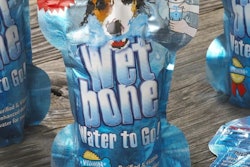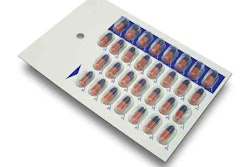San Francisco’s Board of Supervisors voted in March to become the first U.S. city to ban plastic bags from large supermarkets. Under the legislation, large supermarkets and drugstores will not be allowed to offer plastic bags made from petroleum products. Backers said the ban would annually save 450,000 gallons of oil and divert 1,400 tons of debris from area landfills. The new rules would, however, allow recyclable plastic bags. News reports say that Mayor Gavin Newsom is expected to sign the bill into law. To read more go to http://www.cnn.com/2007/US/03/27/environment.baggs.reut/
U.K. retailer Marks and Spencer announced it will send PET plastic waste from its London stores to the U.K.’s first recycling plant to turn used plastic bottles back into food packaging. Closed Loop London said its new $23.6 million plant will ensure that 35,000 tons of PET will be converted into packaging material annually. The new plant is due to open in December.
A recent Foodservice & Packaging Institute survey found that nearly three quarters of North American manufacturers and suppliers of foodservice packaging said they expect their sales volumes to rise in 2007. Among the respondents, 79% expect their profits to improve. Despite this optimism, the foodservice packaging industry has a number of concerns about the future, including increases in raw material costs; margin compression; development of new products in response to calls for sustainable packaging; government regulations; and mergers and acquisitions.
Cascades has introduced BioxoTM, which the company says is a first-of-its-kind line of containers made from oxo-degradable polystyrene foam. The containers are designed to degrade within three years, unlike traditional polystyrene foam containers that require several hundred years to degrade. To read more go to http://www.cascades.com/cas/Main?map=news&action=view&nid=382&menu=2&cid=1〈=en&leftmenu=1&zone=0_2&cat=
A new report, A Study of Packaging Efficiency as It Relates to Waste Prevention, finds that light-weighting is one of the best ways to improve the environmental and economic efficiency of consumer product packaging. Find the full 56 page report at www.use-less-stuff.com
The Packaging Association of Canada, the Sustainable Packaging Coalition, and Walter Soroka Associates are jointly working on the development of a sustainable packaging curriculum for the packaging community. To read more go to http://www.pac.ca/

























